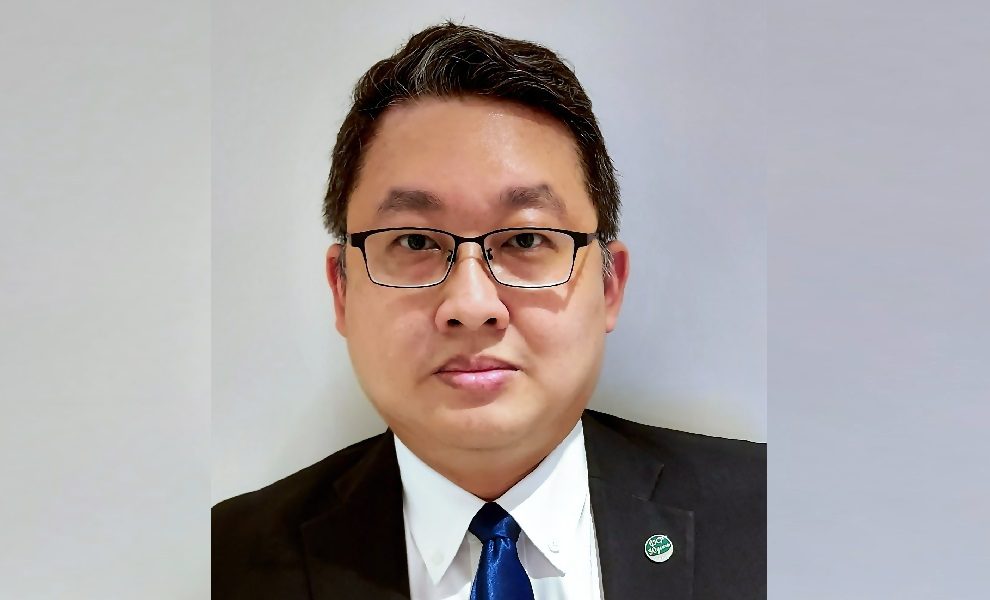Interview: Khalid Athar
Khalid Athar: What products and solutions did Huawei showcase at GISEC this year?
Aloysius Cheang: At this year’s GISEC, Huawei highlighted how to achieve shared success in cybersecurity through technology innovation and bridging the cybersecurity divide via open standards and technical collaboration.
As a company, we are dedicated to creating inclusive values and providing affordable, user-friendly, reliable products and services. Huawei is continuously working with customers, industry partners, and academia to achieve win-win cooperation, develop pervasive intelligence, and build a fully connected, intelligent world.
During the event, Huawei showcased solutions that aim to add new value for industries in both public and private sectors including Huawei Smart Government Solutions and Smart Energy.
Huawei also showcased its cloud services including Intelligent Twins, Cloud Native 2.0, Enterprise Intelligence (EI) Experience Center that is key to accelerating digital transformation and reshaping enterprises’ business operation and value creation models.
Huawei experts also touched on 5G and its role in empowering industries and cybersecurity as a whole. During the Telecom Cybersecurity session, the Organization of the Islamic Cooperation – Computer Emergency Response Team (OIC-CERT), announced the launch of a 5G security working group for all stakeholders, which Huawei is co-chairing.
KA: What is the significance of this event in the region and why is it important to Huawei?
AC: Digital transformation in the Middle East is thriving. As the importance of digital technology continues to rise, so are the requirements of cyberspace. As such, we must engage the entire digital ecosystem through openness and collaboration to harness unified international standards and mitigate challenges in the cyber ecosystem. There is an inherent need for a greater understanding of digital technologies as well as international policies and joint efforts to overcome any cyber threats.
GISEC 2021 is the most influential event in the MENA region, and it’s a global platform that brings together world-class cybersecurity innovators, enterprises, and governments under one roof to collaborate, share ideas and explore new ways on how to achieve a safer cyberspace for all.
It is an ideal platform to showcase our solutions that are developed based on security-by-design and privacy-by-design principles, guided by the Zero-Trust model as we continue to ensure smart cities are also safe cities.
KA: What is Huawei’s cybersecurity strategy and how is it helping to build an end-to-end cybersecurity assurance and privacy protection system?
AC: Cybersecurity is a key enabler for Huawei’s business overall. Huawei’s top-down cybersecurity governance structure supports the success of its business in the Middle East and around the world. The Global Cyber Security and User Privacy Protection Committee (GSPC) is Huawei’s highest cybersecurity management body. Within that, the Global Cyber Security and User Privacy Protection Officer (GSPO) is an important member of the GSPC, and reports directly to the CEO of Huawei. The GSPC is in charge of developing Huawei’s security strategy and plans, manages, and oversees how departments such as R&D, supply chain, marketing, sales, and so on, structure their security teams and ensure security in their business activities.
The system covers all departments, geographies, and processes. In key regions and countries such as the UAE, a dedicated Chief Security Officer (CSO) is appointed to support business on the ground as well as reporting back to the GSPO and the GSPC in the HQ. The CSO will facilitate effective communication between Huawei and its stakeholders, including governments, customers, partners, and employees.
Over the past two years, we have reviewed our approach to security and privacy, analyzed the directions in which new technologies are heading, and the current and future challenges facing our customers. As a consequence, we have enhanced our cybersecurity and privacy frameworks. These frameworks guide how we drive process transformation, solutions, security engineering capabilities, security technologies and standards, independent verification, our supply chain, and personnel management. This has enabled us to proactively enhance our end-to-end cybersecurity assurance capabilities and build resiliency.
KA: What are some of the best practices for governments and businesses in addressing today’s cybersecurity challenges? What initiatives does Huawei have in place to support regional and global bodies?
AC: As societies have become increasingly dependent on the internet, new cybersecurity vulnerabilities have emerged. Due to this, companies, government entities and individuals can all fall prey to cyber threats. In order to address today’s cybersecurity challenges, collaborations between governments and private enterprises are key.
Huawei has been working closely with its stakeholders such as healthcare providers, educational institutions, and government entities to combat cyber threats. For example, during the event, Huawei showcased its Huawei Smart Government Solutions, which enable governments around the world to transform from traditional mode of operation to the next-gen digital smart, safe and secure cloud-based operation. Separately, we also displayed Smart Education Solutions that are transforming the education sector around the world for a smart, fully connected, intelligent world.
KA: What can be done to further strengthen the cybersecurity landscape in the region and what role do you foresee Huawei playing to fill the current gaps, in building a digitally secure future?
AC: We believe in value creation, together with our customers so that it is a shared success. We believe that there’s a need for us to work together with the local ecosystems, to help nurture ecosystems, to build more expertise in terms of talent development, and to drive standards and best practices. It is important to set some kind of baseline cybersecurity strategy or hygiene that should be practiced by small and medium enterprises.
There is a need for us to proactively contribute to the industry and this is what we have set out to do right now, basically to give a call to arms to the UAE to establish it as the region’s trusted cybersecurity hub. That is one of the objectives as we join the OIC-CERT and co-lead OIC-CERT’s effort to define 5G security best practices and standards for OIC member states.
KA: Going into the next decade of innovation and hyper-connectivity, how is Huawei helping to accelerate the UAE’s digital transformation journey through its cybersecurity expertise?
AC: As a leading global provider of ICT infrastructure and smart devices, Huawei plays an active role in the digital transformation of industries to bring digital to every person, home, and organization. While digital transformation initiatives accelerate across the world, we feel we have a clear responsibility to ensure that cybersecurity and privacy protection remain a top priority. We have thus implemented and maintained a comprehensive, end-to-end cybersecurity assurance system.
There are three pillars of cybersecurity today: people, processes, and technology. Huawei already has the technology in place. We are now focused more than ever on building the people and processes to match up to the technology, especially focusing on capacity building.
Many Gulf countries including the UAE are trendsetters for new technological standards. Nations like the UAE have been frontrunners in transitioning to a connected, intelligent era. Huawei is committed to training around 10,000 professionals in the UAE alone in the next three years, helping them to be future ready. Today we are doing this across the Middle East and around the world.
Building and fully implementing an end-to-end global cybersecurity assurance and privacy protection system is one of Huawei’s most crucial strategies for the country and the region. We are referencing industry best practices to build a system that is sustainable, reliable, and compliant with applicable laws and international best practices and standards in cybersecurity and data privacy protection. This system covers everything from policies, organizational structures, processes, and management to technologies and standard practice.
Huawei transparently collaborates with governments, customers, and partners as we build a vibrant digital eco-system and establish the UAE as a digital trusted hub to tackle cybersecurity and privacy challenges and meet our customers’ demands while nurturing a vibrant ecosystem through technical excellence and innovation in an open and transparent environment that will uplift the entire profession and bring maturity to the new digital order.












